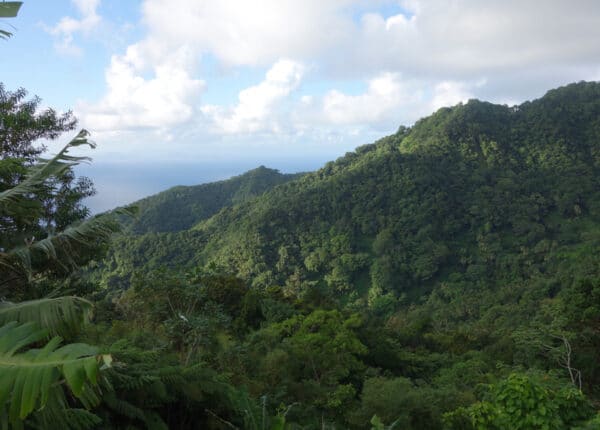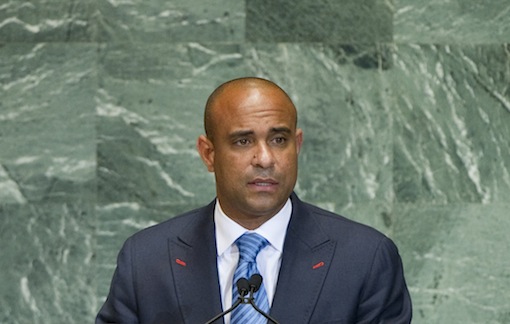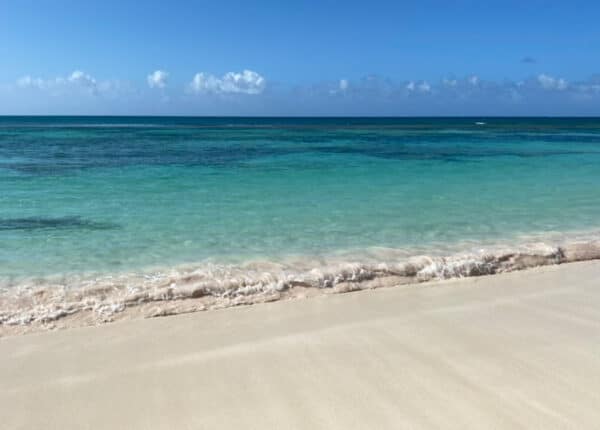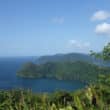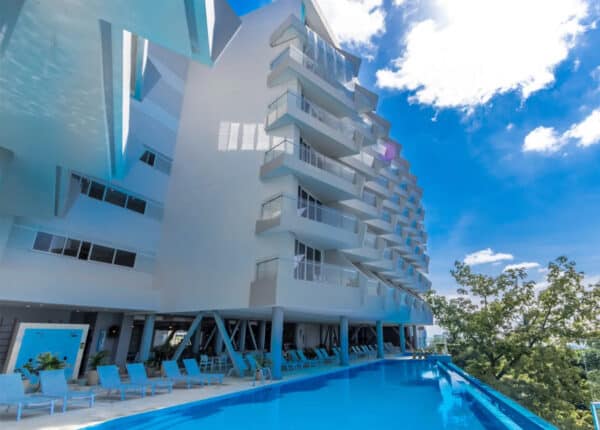Interview with Haiti PM Laurent Lamothe
Above: Haiti Prime Minister Laurent Lamothe (UN Photo/ J Carrier)
By Alexander Britell
Haiti is trying to move the process of reconstruction into a higher gear. While the country’s GDP has been growing at a strong pace, natural disasters and the lingering effects of the earthquake continue to present roadblocks. Laurent Lamothe, a former telecom executive and graduate of Saint Thomas University and Barry University in Florida, has served as Haiti’s Prime Minister since May, leading a government that is pushing a message that the country is “open for business.” But what are the government’s business priorities, and how does Haiti follow a new path in areas like tourism and education? To learn more, Caribbean Journal spoke to Lamothe about issues from reforming the country’s business environment to its plans to reposition its tourism sector.
What is your biggest priority right now?
The biggest priority is to create sustainable jobs. We have a 75 percent unemployment rate, but we also have the Caribbean’s highest growth, and we also want to have growth in GDP. This is the biggest priority. We’re doing business legislation reforms. We’re trying to reduce the number of days to open a company to 10 days by making it an online process, to reduce the costs of opening a company, and to boost the budget of the investment promotion office. We’re also working with the Presidential Advisory Council for foreign direct investment. As for government programmes in terms of emergencies, we have had two storms that flooded the northern part of the country, so we are investing in disaster relief bills and prevention. So we extended the State of Emergency for 30 days — that will allow us to complete the plans to finish working on the disaster prevention strategy.
So how are you working to promote investment in Haiti?
In terms of finding investors, Haiti has a big opportunity. We have several large investors that came here with the northern industrial park that opened its doors in Caracol, with the help of the IDB and the US State Department. This has created a platform for which companies can come in and invest and benefit with some of the favourable trade laws between Haiti and the United States. So we have had several large investors come in and show interest through the industrial park in order to create manufacturing plants here for their products abroad. I will be going to Davos at the World Economic Forum to discuss some of the opportunities that Haiti has in terms of manufacturing. We are investing also in an industrial park in Port-au-Prince, and several industrial parks across the country, to spur economic growth and job creation.
So what is your pitch to foreign investors on why they should invest in Haiti?
Well, very simple. We have a very aggressive investment code. The government is open for joint ventures, and the government is opening to new companies coming in and investments in products are coming in. Basically, the main attraction is the trade agreement we have with the US.
Haiti’s Tourism Minister, Stephanie Villedrouin, has been pushing a new tourism strategy for Haiti. What do you see as the best ways to grow that sector in the country?
One of them is Ile a Vache, the second site where we have invested. We have invested already in Jacmel, over $40 million to refurbish the town of Jacmel in the southeast of the country to be a port for tourism and boats to come in for a few days and enjoy that port. And now, we have decided to take the tourism development on the island of Ile a Vache, so there we’re going to build an international airport, and then the tourism [infrastructure] to attract investors — we have several investors already. There is a hotel coming up there [in Ile a Vache], which is certainly one of the nicest islands in the Caribbean.
Can Haiti eventually produce a significant portion of its GDP from tourism, like many of its Caribbean neighbours?
This is the objective — this is the goal. We have — again — a treasure in the Caribbean that we can exploit and promote fully and invest in fully. I think Ile a Vache has great potential, and it doesn’t present the challenges for land title that you might face on the mainland.
You mentioned land title. Land title and real property rights have been a challenge for Haiti for some time — how is your government working to change that?
Well, it’s going to be a process. Because the land titling has always been part of the history in Haiti, and so we are definitely putting a lot of energy and effort in that. We have the CIAT [the Interministerial Committee for Territorial Planning], the territorial agency that works on land titles, and we are working with different friendly countries in order to keep working on that strategy. But it’s going to be a long term process — we’re also working with private companies to do it for us.
The upcoming elections have been a continued issue — what is the current status on holding these elections?
Well, it’s very positive. Only [Tuesday] the Executive was working with different sectors of society including the Parliament, and there was a parliamentary commission that was put together to work through our commission, so things are moving forward on that, and I’m happy to know that.
How much is the Diaspora involved in Haiti’s reconstruction, and what role can it play?
The Diaspora is coming back. I think that they can come back at a greater number. But of course, we have to create conditions for them. So we’re building a programme to put them in a situation where they can help us. But like I said, in my Cabinet we have a graduate from the London School of Economics, a Wharton MBA, we have several Canadian McGill graduates, a Fulbright scholar. So we have a young dynamic in the Diaspora, that is working together to contribute to put the country back to recovery.
The government has been pushing an education agenda — what kind of progress have you seen?
We decided to start with the basic — which is free education for primary children. And the education that we’ve had is 84 percent of children in school compared to 52 percent as before, so it’s a big success, putting 1,287,214 children in primary school for free.
How much should the internet be a part of education in Haiti? Is your government looking to expand internet access across the country?
Well, right now, the internet is a cable from the Bahamas that is connecting Haiti through our national provider, which is Natcom. We have a fibre-optic cable running through the country, and Natocm is to provide the schools to give them internet access to have those type of components. But there’s a lot of work that has to be done in that area.
While the number has fallen, there are still hundreds of thousands of people displaced by the earthquake still living in tent camps. What is the plan for them?
Well, the next step is that we have about 300,000 to 350,000 still living in camps. So the strategy is to remove all of them within the next 18 months. So that’s what we’re doing with our international partners, with local emergency funds to make that a reality. It’s unacceptable that we have people living in camps, in subhuman conditions. And we want to make Haiti an emerging nation by 2030, so we’ve got to make all types of efforts to make that a reality.
Where do you see Haiti fitting in within CARICOM?
Well, I’m happy to report that, starting in January, Haiti will be the Chairman of CARICOM for six months, so we’re going to do the best job possible and represent Haiti with pride and represent CARICOM through the world with the honour and respect that is owed to Caribbean nations. The relationship with CARICOM is very good, and we have a good understanding of what is good for CARICOM. Haiti is the largest market [in CARICOM], basically double the size of all the Caribbean nations put together. So we are working with CARICOM not only to benefit from the privileges that CARICOM nations have, but also from the different trade agreements to bring about Haitian products to them, and to get CARICOM member products into Haiti and start developing the trading exchanges that are necessary for the nations to prosper. We have wanted to have our citizens able to travel freely in CARICOM countries. We haven’t done that yet, but that’s what we want, and that’s what we’ll continue to push.
You’ve been Prime Minister since May — what would you consider your biggest success so far, and what has been most challenging for you?
The biggest success so far basically has been our education policy, and our social programmes — that by far. The biggest challenge, in that sense, is speeding up some of the business reforms through Parliament. So that’s what we’re working on — to fast-track the Parliamentary agenda. So we have several sessions this month in order to speed up the reforms.
